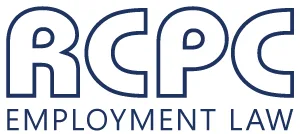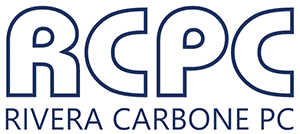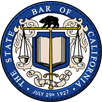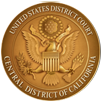Under California and United States law, Employers are required to display several posters at the workplace in places easily accessible to employees and job applicants. Employers are also required by law to distribute certain notices or pamphlets to employees, either at the time of hiring or in connection with specific events during the employment relationship. Failure to comply with these requirements can expose employers to fines and/or investigations by the appropriate government agencies. The following is a summary of such requirements.
A. Employment “Poster”
There are several companies which offer a “poster” which consolidates most notice requirements into a single placard that is easy to read and has been recognized by governmental agencies to be in compliance with the applicable laws.
The following are the required postings:
|
Notice Required
|
Source of Requirement
|
Notes
|
|
Federal Minimum Wage
|
U.S. Dept. of Labor
|
|
|
Equal Employment Opportunity is the Law
|
EEOC
|
|
|
Safety and Health Protection on the Job
|
California Dept. of Industrial Relations/Division of Occupational Safety & Health
|
|
|
Notice to Employees on Employment Insurance
|
Employment Development Dept.
|
|
|
Notice to Employees on Supplemental Disability Insurance
|
Employment Development Dept.
|
|
|
Notice to Employees on Paid Family Leave
|
EDD/ California Minimum Wage Source Industrial Welfare Commission
|
|
|
Your Rights Under — USERRA (Veterans Benefits)
|
United States Dept. of Labor
|
|
|
Notice to Employees Regarding Polygraph Protection Act
|
United States Dept. of Labor
|
|
|
Wage Order
|
EDD/DIR
|
|
|
|
Dept. of Fair Employment and Housing
|
Form DFEH-162
Form DFEH-162S
|
|
Emergency Phone Numbers
|
Dept. of Industrial Relations, Division of Occupational Safety & Health
|
|
|
Pay Day Notice
|
Dept. of Industrial Relations,
|
Form DLSE8
|
|
Notice to Employees – Injuries Caused by Work
|
Division of Workers Compensation
|
DWC Form 7
|
|
Paid Disability Leave
|
Dept. of Fair Employment and Housing
|
Form DFEH100-20
|
|
Time Off for Voting
|
California Secretary of State
|
|
|
Protection for Employee Whistle Blowers
|
Office of the Attorney General
|
|
B. Required Posting Under Special Circumstances
|
Notice Required
|
Source of Requirement
|
Notes
|
|
Paid Family Leave
|
EDD
|
Provide to new employee and when an employee takes leave for a covered event, Form DE2511
|
|
State Disability Insurance
|
EDD
|
Provide to new employee and when non-work related disability leave, Form DE2515
|
|
Unemployment Insurance
|
EDD
|
Provide to any employee being terminated, laid off or given a leave of absence, Form DE2320
|
|
Notice Regarding Employee’s Withholding Allowance Certificate
|
EDD
|
Notice to Employee that your employer must send a copy of your W-4 (federal) or DE-4 (state) if: you claim more than 10 allowances OR you claim to be exempt from state or federal income tax and your weekly wages are over $200. Form DE35
|
|
Workers Compensation
|
Dept. of Industrial Relations
|
Provide to new employees the name of company, the company’s covered compensation carrier, location and telephone number of the nearest information assistance officer
|
|
Sexual Harassment
|
Dept. of Fair Employment and Housing
|
Provide to new employees, Form DFEH-185
|
C. Other Posting Requirements
1. Notice to Employee as to Change in Relationship
Unemployment Code Section 1089 requires for employers to give written notice to an employee of his or her discharge, layoff or leave of absence. Notice must contain at a minimum: a) name of employer, b) name of employee, c) the Social Security number of the employee, d) type of action: discharge, layoff, leave of absence or change in status from employee to independent contractor; and e) date of action.
2. Health Insurance
In addition to the notices required by the Consolidated Omnibus Budget Reconciliation Act (COBRA), California law requires to provide certain notices to terminated employees of their ability to continue health insurance coverage at the state’s expense under a Health Insurance Premium Payment (HIPP) Notice.
3. Hazardous Substances
If the Company uses hazardous substances in the workplace, an occupational safety and health notice must be read to employees regarding the contents of the material safety data sheets related to the hazardous substances.
4. Annual Summary
Employers are required to post an annual summary of occupational injuries and illnesses for each establishment known as CAL/OSHA form 300A.
5. Illness Prevention Program Code of Safe Practices
Employers are required to have a written illness and injury prevention program.
6. Fire Protection Plan
Every employer must have a fire prevention plan and is required to tell employees how to prevent fires and what to do in the event of a fire. A posting at least the location of exits and extinguishers is expected. The posting must be in the workplace and available for review by all employees.
7. Smoking Prohibition
Under the Labor Code, smoking is prohibited in most enclosed workplaces. Employees are required to post no smoking signs at each building entrance or smoking prohibited except in designated areas, when smoking is allowed in some areas.
8. Notice of Time and Place of Payment of Wages
This is required under Labor Code § 207
9. Notice of Employee’s Right to Take Time off to Vote
Not less than 10 days before a statewide election, post this Notice. See: Election Code §§ 14350, 14351.
D. Posting Requirements under Government Contracts
Please be mindful that, provided you deliver goods or perform services under a government contract, other specific posting requirements may apply. The types of postings will depend upon the rules established by the contracting government agency.







